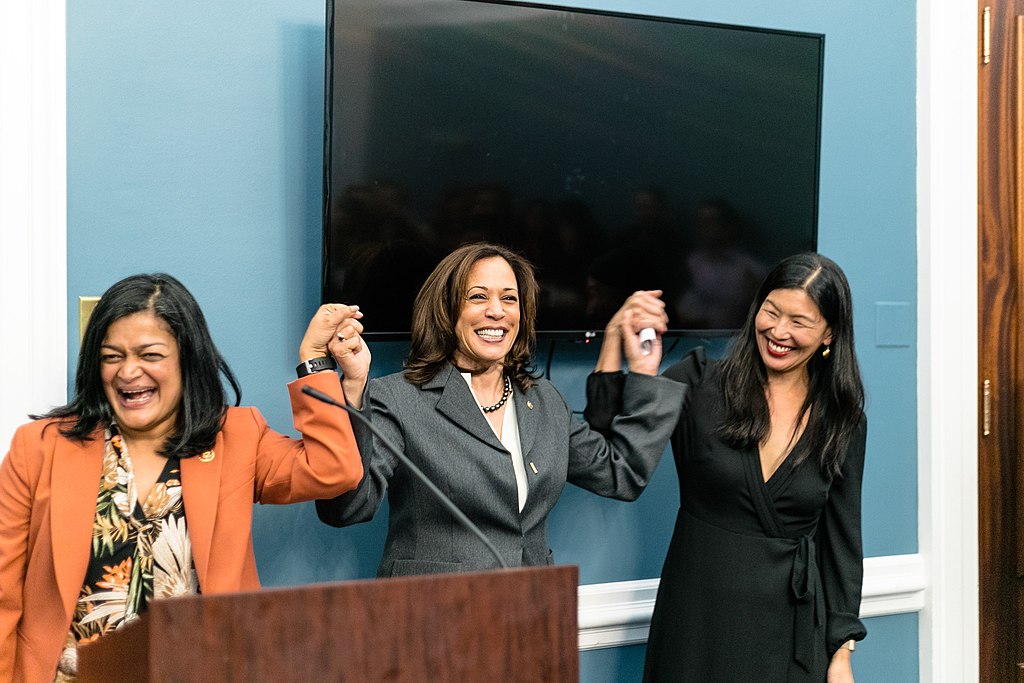Kamala Harris' proposed tax policies are sparking serious concerns after a recent analysis from the Tax Foundation. The organization revealed alarming figures, projecting that her plans could result in almost 800,000 job losses in the long run and a devastating 2% reduction in GDP. Critics are now sounding the alarm about what they view as the potential fallout from the Vice President's economic strategies.
Job Losses and GDP Decline: The Hard Numbers
According to the Tax Foundation’s report, Harris’ tax proposals could bring severe consequences to the American economy. The analysis highlights that nearly 800,000 jobs would be lost over time as companies struggle to adjust to higher tax rates and increased regulatory burdens. The forecast also predicts a 2% drop in long-term GDP, underscoring the potential hit to economic growth that could be felt across industries.
What's Behind the Job Losses?
The proposed tax increases on corporations and high-income earners are among the most criticized aspects of Harris' plan. While designed to redistribute wealth and fund social programs, the higher taxes could, according to the report, force businesses to downsize and relocate their operations to countries with more favorable tax rates. This is expected to lead to significant job cuts across multiple sectors, from manufacturing to technology.
Many economists agree that such aggressive tax policies could stifle economic expansion, leading to fewer opportunities for workers and a slowdown in overall productivity. In response, Harris supporters argue that these tax reforms are necessary to fund essential programs such as healthcare, education, and infrastructure.
Impact on Small Businesses
In addition to job losses in larger corporations, small businesses are expected to feel the pinch as well. The Tax Foundation suggests that the proposed tax hikes could limit the ability of small enterprises to invest and grow, leading to lower wages, fewer hiring opportunities, and, in some cases, closures.
Opponents of Harris’ tax policies warn that this could hurt the backbone of the American economy—small businesses that drive innovation and job creation in local communities.
Critics Call It a 'Bloodbath'
John Hasson, a political commentator, took to social media to express his outrage, calling the analysis a "bloodbath." He emphasized the far-reaching implications of Harris' tax agenda, suggesting that it would damage not just the wealthy but also middle-class Americans who could lose their jobs as companies cut costs to offset the higher tax burden.
“Holy crap,” Hasson tweeted, “The Tax Foundation analyzed Kamala’s proposed tax policies—and it’s an absolute bloodbath.” His stark warning was quickly picked up by other conservative commentators who echoed his concerns about the future of the U.S. economy under such policies.
Harris' Defense and Supporters' Counterarguments
While Harris faces a wave of criticism, her supporters contend that her tax proposals are a necessary step toward reducing income inequality and funding critical social services. They argue that the economic downturn projected by opponents is exaggerated and that the long-term benefits of a more equitable society outweigh the short-term losses.
Regardless of where the truth lies, the debate around Kamala Harris’ tax policies is heating up, with significant stakes for both the job market and the overall economy.



 U.S. to Begin Paying UN Dues as Financial Crisis Spurs Push for Reforms
U.S. to Begin Paying UN Dues as Financial Crisis Spurs Push for Reforms  U.S. Lawmakers to Review Unredacted Jeffrey Epstein DOJ Files Starting Monday
U.S. Lawmakers to Review Unredacted Jeffrey Epstein DOJ Files Starting Monday  Japan Election 2026: Sanae Takaichi Poised for Landslide Win Despite Record Snowfall
Japan Election 2026: Sanae Takaichi Poised for Landslide Win Despite Record Snowfall  TrumpRx.gov Highlights GLP-1 Drug Discounts but Offers Limited Savings for Most Americans
TrumpRx.gov Highlights GLP-1 Drug Discounts but Offers Limited Savings for Most Americans  New York Legalizes Medical Aid in Dying for Terminally Ill Patients
New York Legalizes Medical Aid in Dying for Terminally Ill Patients  US Pushes Ukraine-Russia Peace Talks Before Summer Amid Escalating Attacks
US Pushes Ukraine-Russia Peace Talks Before Summer Amid Escalating Attacks  Iran–U.S. Nuclear Talks in Oman Face Major Hurdles Amid Rising Regional Tensions
Iran–U.S. Nuclear Talks in Oman Face Major Hurdles Amid Rising Regional Tensions  Trump Lifts 25% Tariff on Indian Goods in Strategic U.S.–India Trade and Energy Deal
Trump Lifts 25% Tariff on Indian Goods in Strategic U.S.–India Trade and Energy Deal  Jack Lang Resigns as Head of Arab World Institute Amid Epstein Controversy
Jack Lang Resigns as Head of Arab World Institute Amid Epstein Controversy  Trump Endorses Japan’s Sanae Takaichi Ahead of Crucial Election Amid Market and China Tensions
Trump Endorses Japan’s Sanae Takaichi Ahead of Crucial Election Amid Market and China Tensions  Ohio Man Indicted for Alleged Threat Against Vice President JD Vance, Faces Additional Federal Charges
Ohio Man Indicted for Alleged Threat Against Vice President JD Vance, Faces Additional Federal Charges  Pentagon Ends Military Education Programs With Harvard University
Pentagon Ends Military Education Programs With Harvard University  Federal Judge Restores Funding for Gateway Rail Tunnel Project
Federal Judge Restores Funding for Gateway Rail Tunnel Project  Trump’s Inflation Claims Clash With Voters’ Cost-of-Living Reality
Trump’s Inflation Claims Clash With Voters’ Cost-of-Living Reality  Trump Backs Nexstar–Tegna Merger Amid Shifting U.S. Media Landscape
Trump Backs Nexstar–Tegna Merger Amid Shifting U.S. Media Landscape  Trump Allows Commercial Fishing in Protected New England Waters
Trump Allows Commercial Fishing in Protected New England Waters  South Korea Assures U.S. on Trade Deal Commitments Amid Tariff Concerns
South Korea Assures U.S. on Trade Deal Commitments Amid Tariff Concerns 































